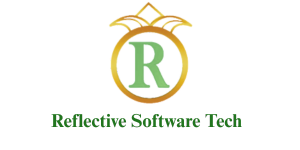
In today’s rapidly evolving digital economy, traditional hiring practices are no longer sufficient to attract, evaluate, and retain top talent. Companies, from nimble startups to large enterprises, are increasingly turning to Artificial Intelligence (AI) to modernize and optimize their recruitment processes. With AI-powered tools and platforms becoming mainstream, the hiring landscape is undergoing a massive transformation.
This blog explores how AI is reshaping recruitment practices in 2025 and beyond, the benefits and challenges of its adoption, and what hiring managers and HR professionals need to know to stay competitive.
Why the Recruitment Landscape Needed Change
Traditional recruitment methods have long been plagued by inefficiencies:
- Lengthy time-to-hire
- High cost-per-hire
- Human biases in screening
- Poor candidate experiences
- Difficulty in processing large applicant volumes
With the demand for skilled professionals at an all-time high and a workforce that’s more remote and global than ever, these issues became even more prominent. Enter AI.
What is AI in Recruitment?
AI in recruitment refers to the use of intelligent algorithms, machine learning models, and data-driven tools to automate and improve various stages of the hiring funnel.
AI technologies are helping companies:
- Source candidates more effectively
- Analyze resumes faster and more objectively
- Conduct pre-screening assessments
- Predict candidate success and cultural fit
- Enhance candidate engagement through chatbots and personalization
Key Ways AI is Transforming Hiring Practices
1. Automated Resume Screening
Manually reviewing thousands of resumes is time-consuming and prone to bias. AI-based Applicant Tracking Systems (ATS) now use NLP (Natural Language Processing) to:
- Parse resumes in seconds
- Identify relevant keywords and qualifications
- Match candidate profiles to job descriptions
This significantly reduces time-to-hire and improves match accuracy.
2. Intelligent Candidate Sourcing
AI tools scan hundreds of online platforms—like LinkedIn, GitHub, Stack Overflow, or niche job boards—to proactively source candidates based on skills, experience, and behavior patterns.
Some systems even reach out to passive candidates automatically through hyper-personalized messages.
3. AI-Powered Chatbots for Pre-Screening
AI-driven chatbots engage with candidates immediately after application to:
- Answer FAQs about the role or company
- Collect preliminary data (availability, expectations)
- Schedule interviews
This real-time communication improves candidate experience and frees up recruiter time.
4. Video Interviews with AI Analysis
Many companies are now conducting AI-powered video interviews that assess:
- Speech patterns
- Facial expressions
- Body language
- Keyword usage
While still controversial, these systems attempt to objectively evaluate communication skills and emotional intelligence.
5. Predictive Analytics for Hiring Decisions
Using historical hiring data, AI can predict which candidates are likely to succeed in a role. It looks at factors such as:
- Educational background
- Past performance
- Team compatibility
Predictive hiring helps reduce turnover and improve team dynamics.
6. Bias Reduction
AI can be trained to ignore irrelevant demographic data (like age, gender, ethnicity), thereby reducing unconscious bias during screening—assuming the data used to train it is also unbiased.
Benefits of AI in Recruitment
Faster Hiring Process
AI automates time-consuming tasks, reducing the average time-to-hire from weeks to days.
Cost Efficiency
By streamlining processes and reducing manual work, companies save on recruitment agency fees and internal HR overhead.
Better Quality of Hire
With predictive analytics and deeper insights, companies can make more informed hiring decisions.
Enhanced Candidate Experience
24/7 chatbots, personalized job recommendations, and quicker feedback loops keep candidates engaged.
Scalability
AI systems can process thousands of applicants simultaneously, making them ideal for high-volume hiring campaigns.
Challenges and Ethical Concerns
Despite its benefits, AI in recruitment poses several challenges:
Algorithmic Bias
If AI systems are trained on biased data (e.g., past hiring patterns that favored certain groups), they may perpetuate those biases.
Lack of Transparency
Some AI tools are “black boxes,” meaning HR teams can’t always understand how a decision was made.
Privacy Issues
AI collects and processes vast amounts of candidate data. Companies must ensure compliance with data protection laws like GDPR.
Over-Reliance on Technology
Relying solely on AI can lead to missing out on great candidates who don’t fit conventional data patterns.
Best Practices for Using AI in Hiring
- Combine AI with Human Oversight: Let AI handle volume, but keep final decisions human.
- Audit for Bias Regularly: Continuously test and improve your algorithms for fairness.
- Be Transparent with Candidates: Let applicants know when AI is involved and how their data is used.
- Ensure Compliance: Stay updated with global data privacy laws.
- Choose the Right Tools: Not all AI recruitment tools are equal. Choose those that align with your hiring goals and ethics.
Top AI Recruitment Tools in 2025
Here are some popular tools revolutionizing hiring this year:
- HireVue: Video interviewing and AI assessment
- Pymetrics: Neuroscience-based games for assessing candidates
- Hiretual: AI sourcing and candidate rediscovery
- XOR: Recruiting chatbot automation
- SeekOut: Talent intelligence platform for diversity hiring
The Future: What’s Next for AI in Recruitment?
- Hyper-Personalization: Career path suggestions, tailored job matches
- Emotionally Intelligent AI: Systems that better understand human emotions
- AR/VR Interviews: Simulate real work environments during the hiring process
- Voice AI: Smart assistants that conduct initial phone interviews
- Blockchain Integration: Verifying credentials and work history securely
Final Thoughts
AI is not here to replace recruiters but to empower them. The companies that leverage AI wisely—balancing automation with empathy, speed with fairness—will lead the next generation of recruitment.
For startups and enterprises alike, adopting AI in hiring is no longer optional. It’s essential for scaling smarter, hiring better, and staying competitive in a fast-paced talent economy.
Ready to transform your hiring strategy with AI? Partner with Razegreen to build intelligent, scalable recruitment systems that work for the future.
